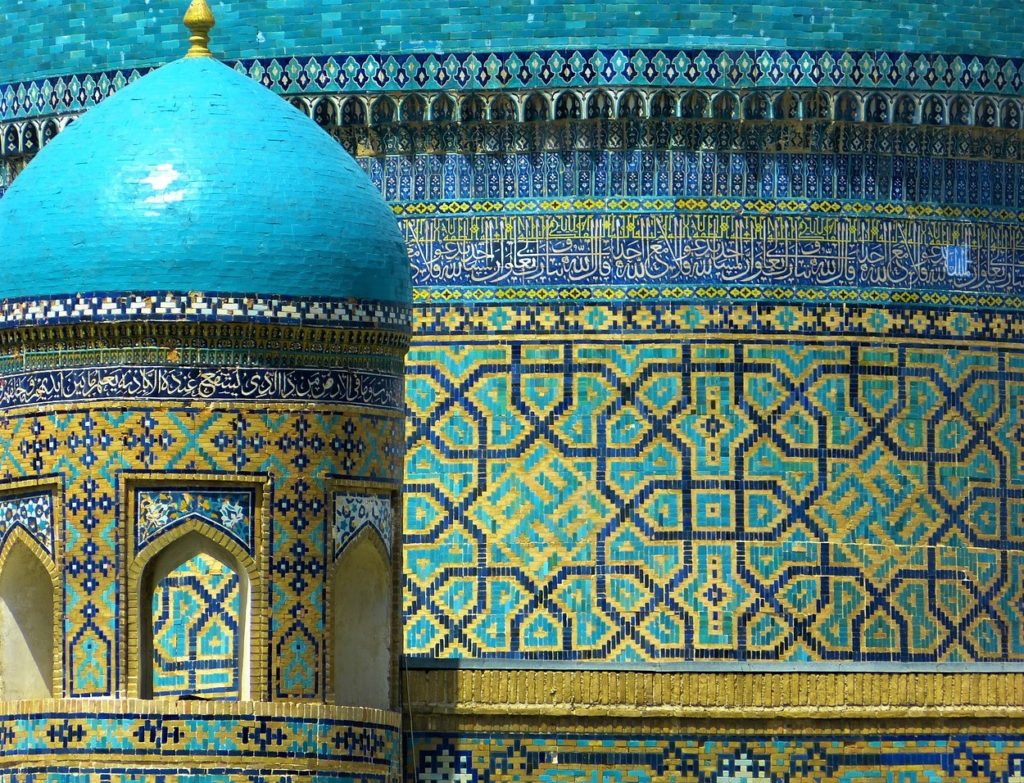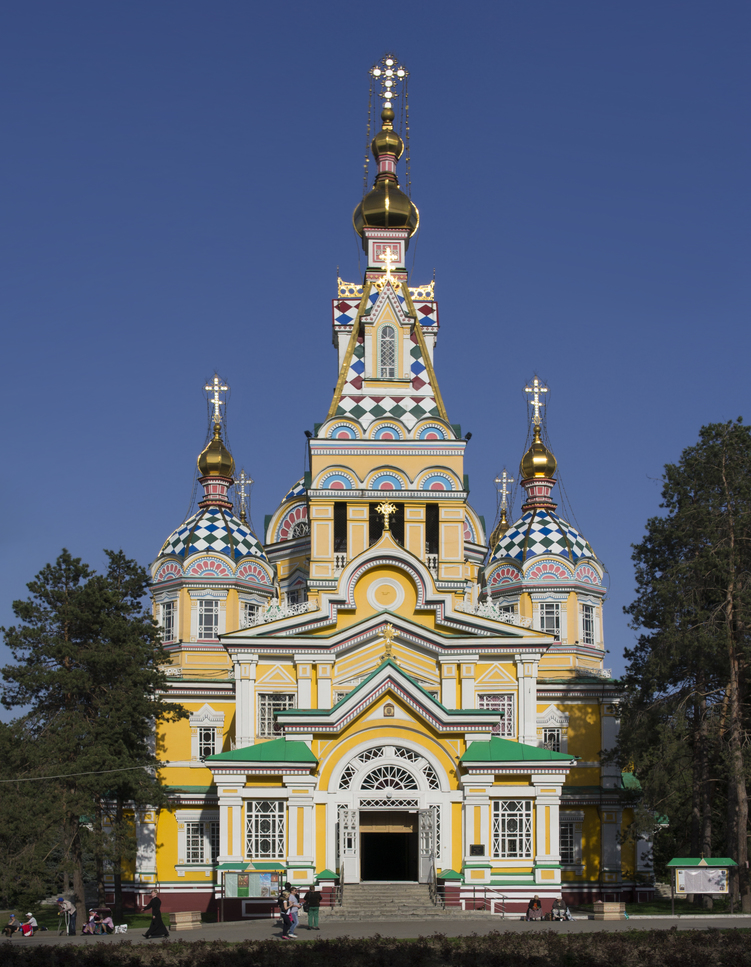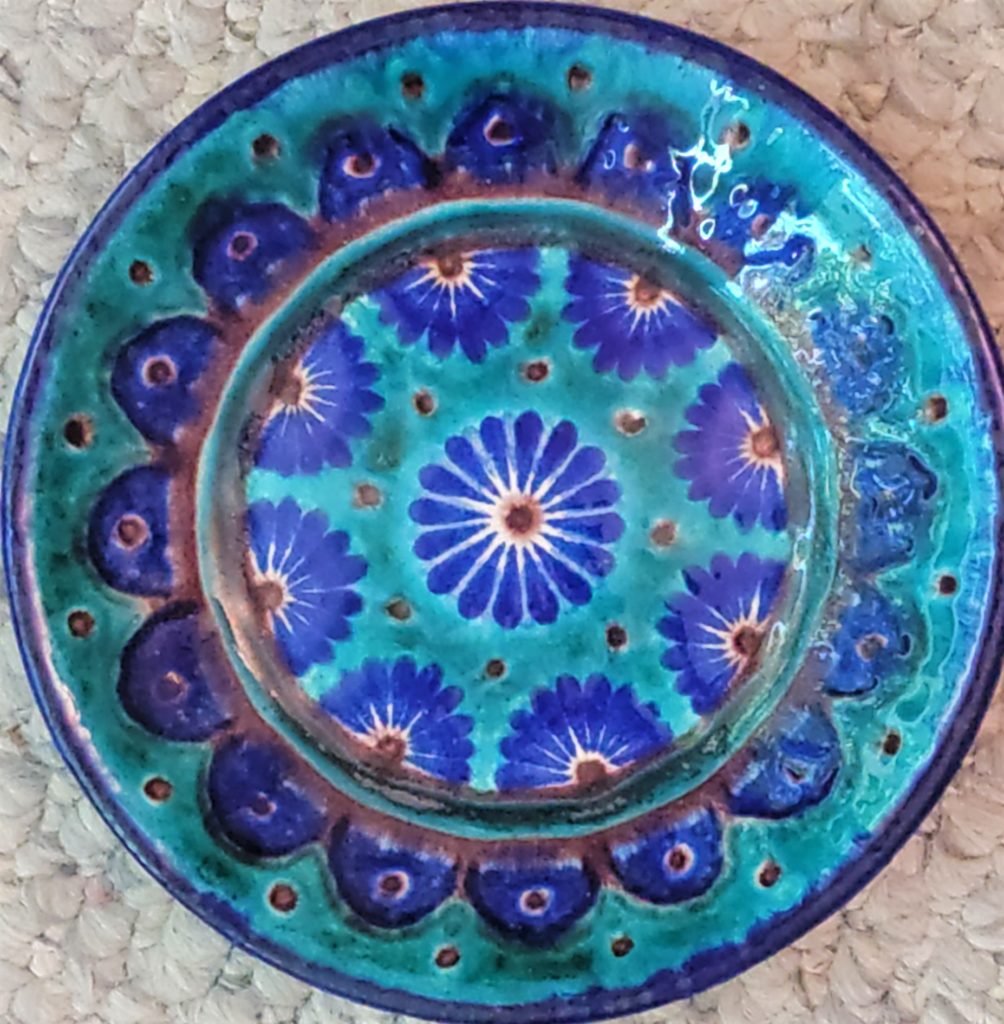Years ago I was taking an epic Silk Road trip through the ‘Stans’, (Uzbekistan, Kirgizstan, Tajikistan, Kazakhstan and Turkmenistan). Their Independence Days were not shared on the same day and somewhat spread out, but three of them were staggered over about 10 days. As it happened, we ended up celebrating each country’s holiday. When the local people found out that we were Americans, (I was with four others and the guide), they would invite us out into the streets with them to celebrate. They knew that we appreciated and understood just what independence and freedom meant and wanted to include us. I think we were celebrated as much as the holiday and the smell of firecrackers stayed with us for days afterwards.
We had spent the day in Kunya Urgench, Turkmenistan, and I was so tired after a day of seeing everything that I didn’t go for an after-dinner walk with the others, but instead, I went to my room to read. Which was pretty challenging with only a 20 watt light bulb (this was before ereaders).
In the morning, as I went down for breakfast, I noted that the hotel was very quiet and somber. More than usual as the old Soviet hotels were not the most cheery of places. It was strange that the atmosphere was so depressed with their Independence Day celebrations approaching soon. At the dining room, I found my fellow travelers extremely subdued and shaken. They asked if I had heard the news. What news? Planes had flown into the World Trade Center a few days ago. I knew all these English words but could not make sense of the meaning. It was as if I was translating another language.
Eventually I understood and we went to the lobby to watch some of the tv footage, and listen to the newsreader telling viewers that the Japanese, yes…Japanese Red Army was responsible. Which made it even more surreal.
As we continued our tour, if only as a distraction, in a more remote area of Ashgabat, we found a shady spot to sit near a small market as two of our group wanted to climb the minaret.
Once some of the ladies selling goods understood that we were not buying anything, but just waiting for companions, and they began to chat with Paul, our American guide. I was understanding a reasonable amount of simple repeated Russian by that point, but even though I couldn’t get much of it to come out of my mouth in a coherent fashion, when they turned to me and asked where I was from, I was able to reply with the one word response of Amerikanka. The women, frozen in place, fell silent. No one in the entire area moved. It was a strange tableau of a stage set with manikins instead of people Even the sand had settled and there was no dust in the air. Slowly the women approached and gathered around me. One by one, they stood before me, put their right hand on their heart, their left hand on my shoulder, leaned in and touched their forehead to mine. No words were exchanged. I began to cry. We had no common spoken language but their expressions of compassion, understanding, and empathy were so eloquent that I still cry with the memory. Twenty years later.
As we eventually sat down for lunch at a local restaurant, our guide Paul was chatting with the manager. Everywhere we went we were an anomaly and we were used to being the subject of discussion, so it wasn’t a surprise. Suddenly, Paul turned to us and said that the manager invited us to use their phone to call our families, if we liked.
I was the only one to do so and I called my Mom. I held it together, barely, until I turned around and saw Paul with tears running down his face. He said he just couldn’t call his Mom yet.
When I spoke with Mom, she asked me to come home and not to continue my trip because everything was so uncertain and rumors were saying that Iran, my next destination, was behind the attacks.
I made it to Frankfurt but could get no further due to the backlog of passengers from the grounded flights. I didn’t want to spend a week in Frankfurt so I headed to my second home of Paris. On my way there, someone let me use their phone and I called my usual hotel and they told me to come directly there and they would take care of everything – even if they didn’t have a room for me, they would find me one. I had been staying there for decades and knew the owner, his family and all the employees so I knew they would do what they said they would.
Everywhere I went in Paris there were signs offering help to any and all Americans. In English: do you need to talk to someone, and a phone number. Do you need help, and a phone number. Parisians offered beds to those stuck at the airport, displays of solidarity were rampant, the city froze for three minutes of silence on the official day of mourning, and people gathered at Notre Dame to repeatedly sing the Star Spangled Banner. Le Monde’s headline, the next day declared “nous sommes tous americains”. We are all Americans. Even though the French lost countless citizens in the attack they reached out to all of us. They stood with us. The Kazakhs stood with us.
Most of the world stood with us. With no common language between these very different cultures, we went from celebrating what freedom meant to those who had had it for 10 years, to mourning the deaths of thousands of people killed because other resented that freedom.
In the end, for a while, the whole shared heartbreak.
For more information on some incredible trips, including the Stans, and the Trans-Siberian Railway Journeys, please reach out to MIR Corporation, Annie, at annie@mircorp.com, (206) 624-7289. They are based in Seattle and Annie will do everything she can to help you. Tell her I sent you!




Beautiful account. I shed a tear.
Very good article. I certainly appreciate this website. Keep writing!